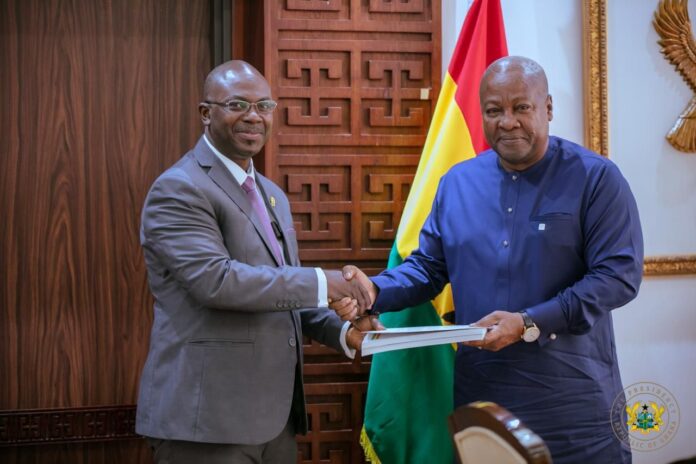The Public Interest and Accountability Committee (PIAC) has commended government for prioritising infrastructure development in the use of petroleum revenues but cautioned that spreading resources across too many projects could dilute impact and strain available funds.
Presenting highlights of its 2025 Semi-Annual Report at a press briefing in Accra, PIAC also raised serious concerns about dwindling investment in Ghana’s oil sector, revealing that no new petroleum agreements have been signed since 2018.
Chair of PIAC’s Technical Sub-Committee, Richard Kojo Ellimah, disclosed that crude oil output fell sharply by 25.9% in the first half of 2025 — from 24.8 million barrels to 18.4 million barrels — while the average price per barrel dropped from US$86.12 to US$74.93.
According to PIAC, the decline stems from ageing oil fields, delayed project approvals, and weak investor interest. “Ghana must act swiftly to attract new investors or risk deeper production declines,” Mr. Ellimah warned.
The Committee further criticised the reduction in the Ghana National Petroleum Corporation’s (GNPC) funding allocation from 30% to 15% of its net interest, urging government to adequately resource the Corporation and reform its governance structure to remain competitive during the global energy transition.
PIAC also flagged the Ghana Stabilisation Fund’s balance, which fell by nearly 37% to US$122.9 million, as insufficient to cushion the economy against future shocks. The Committee estimated that full application of the capping formula could have raised more than US$584 million.
Reaffirming its commitment to transparency in petroleum revenue management, PIAC called on Parliament to enforce existing laws and adopt policies that safeguard the long-term sustainability of Ghana’s oil and gas sector.



